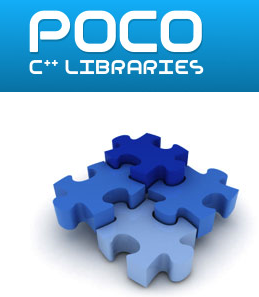C++ Portable Components Release 1.6.0
POCO Release 1.6.0 is out
by POCO Team
This release is the culmination of the work done on GitHub over the last two years, including five development releases. It includes major new features from new contributors, like the JSON and MongoDB libraries, much improved Data library, CMake support, as well as numerous other new features and fixes. A big Thank You to everyone who contributed to this release.




 A short article about two error-detection features in GCC:
A short article about two error-detection features in GCC: A new major version of the Qt has been released.
A new major version of the Qt has been released. In case you missed it, now you can develop web apps in C++ to run natively on Google Chrome. This tutorial shows how to develop a Native Client module in C++ and build and run it using PNaCl toolchain:
In case you missed it, now you can develop web apps in C++ to run natively on Google Chrome. This tutorial shows how to develop a Native Client module in C++ and build and run it using PNaCl toolchain: